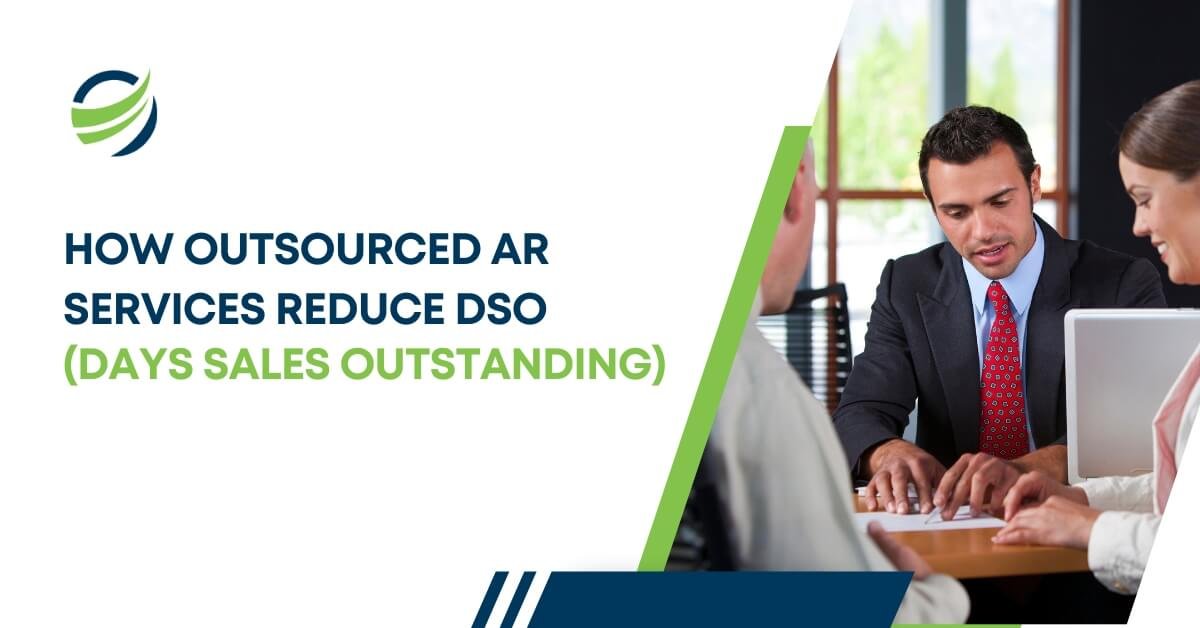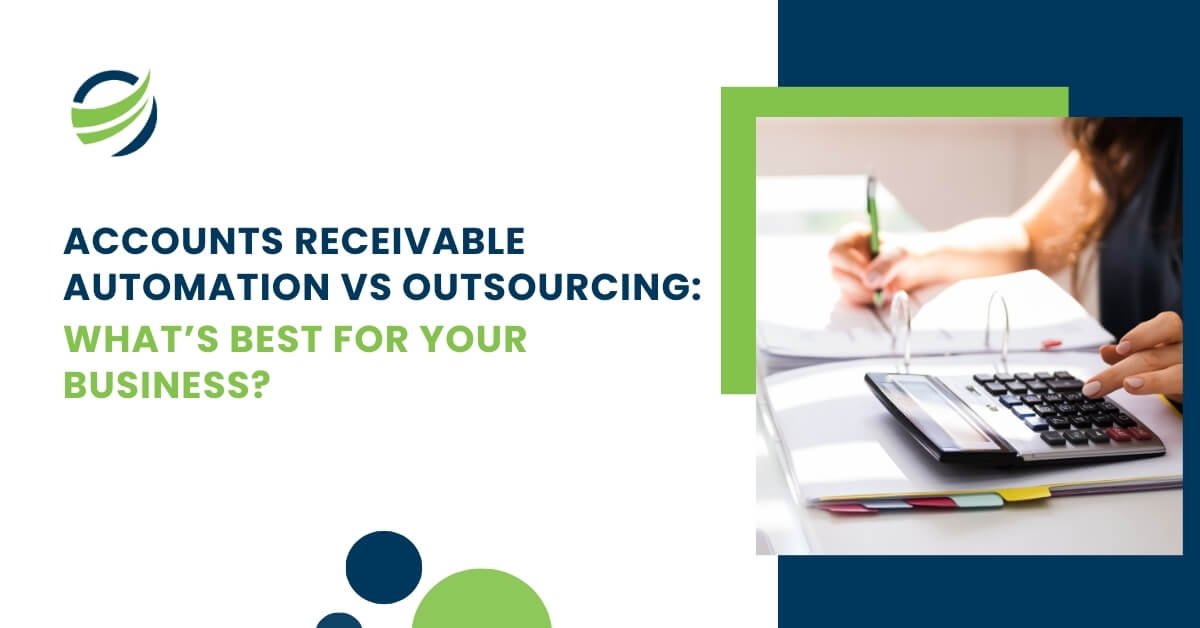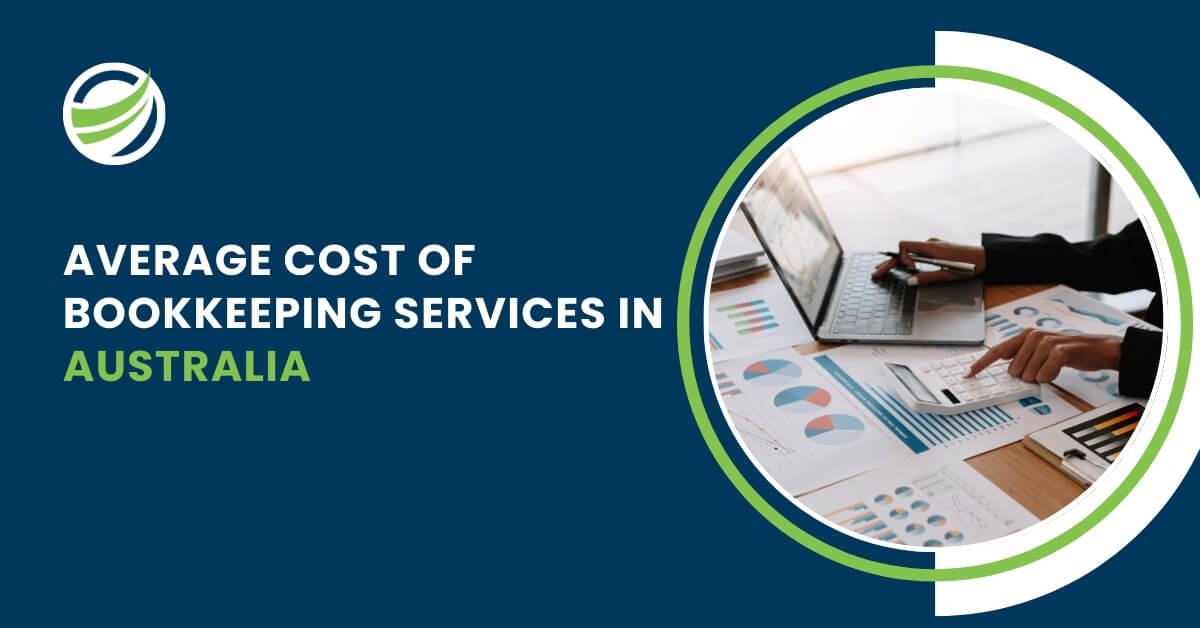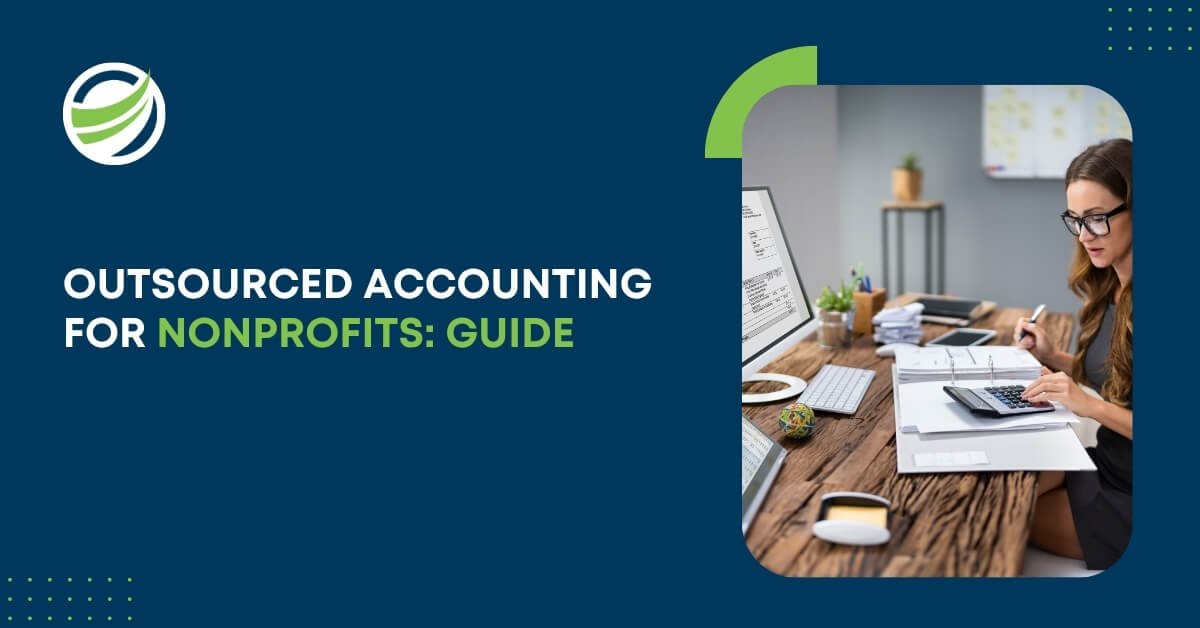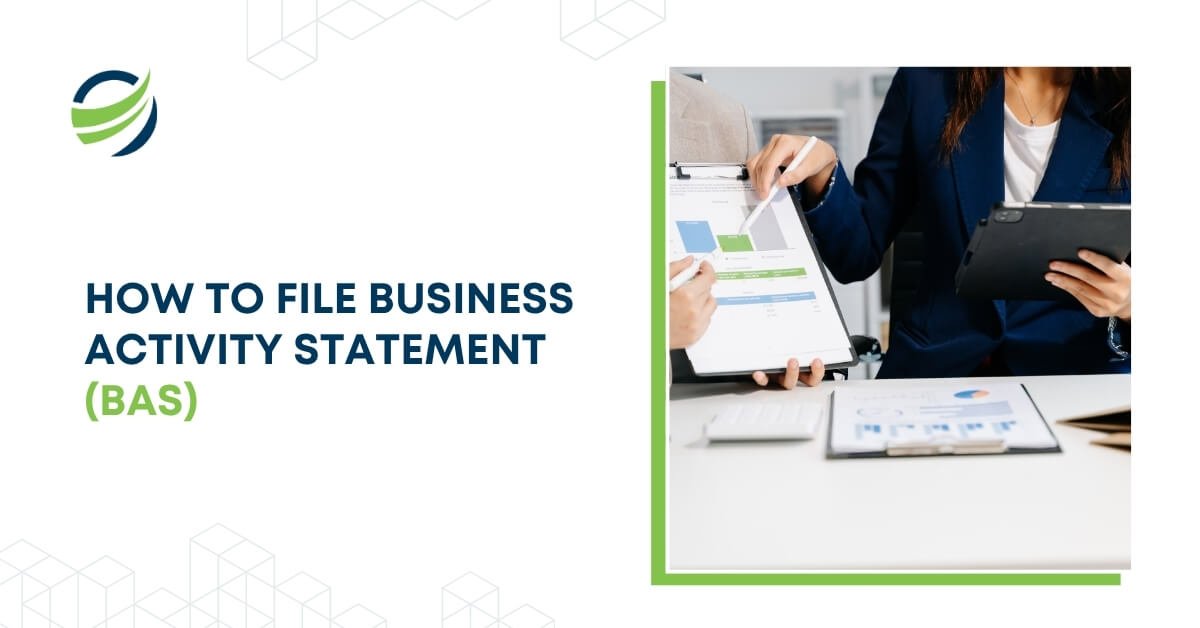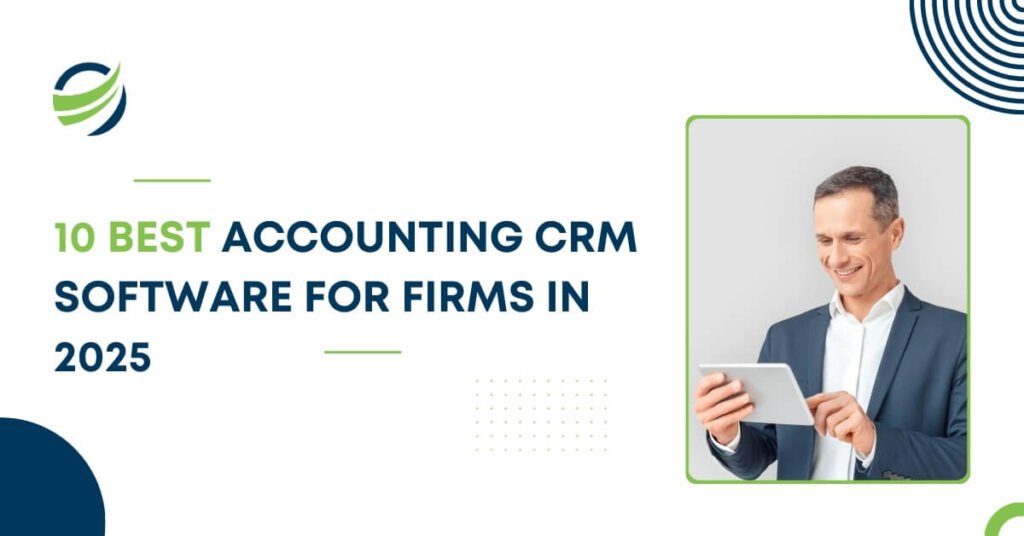
10 Best CRM Software for Accounting Firms in 2025: A Comprehensive Review
- Aesha Shah
- September 8, 2025
- 7 minutes
- Blogs
In recent years, particularly since the COVID-19 pandemic, accounting firms have accelerated their move toward a paperless future. This transformation has been driven by the adoption of CRM software for accounting firms, which allows CPAs and accountants to securely manage large volumes of client data, streamline operations, and improve client relationships.
Many practices are also combining CRM platforms with SMSF outsourcing services, outsourced bookkeeping services, and other back-office solutions to improve efficiency and compliance.
The growing demand for efficiency explains why there are now so many platforms positioning themselves as the best accounting CRM software. Modern solutions function as far more than just databases, they act as CRM software for accounting firms, offering lead tracking, workflow automation, and collaboration tools that enhance growth.
Alongside CRM, many practices are embracing financial compliance services, virtual CFO support, and payroll outsourcing to create a complete digital ecosystem.
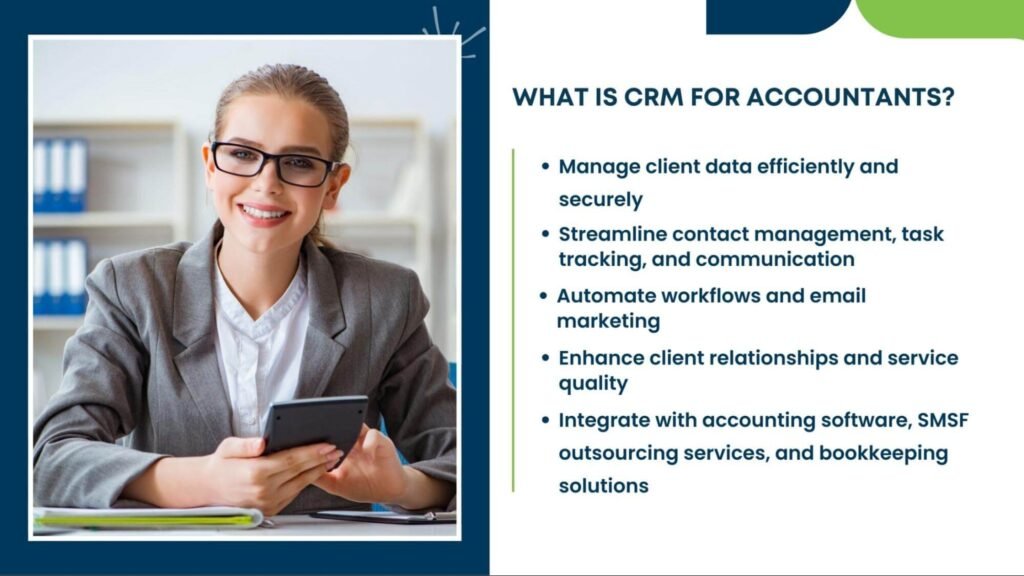
What is CRM for Accountants?
Customer relationship management (CRM) software helps outsourcing accounting firms, bookkeepers, and tax professionals manage client information and relationships with greater efficiency. These tools streamline contact management, task tracking, automation, communication, and even email marketing, bringing order to every aspect of client engagement.
Many firms now combine CRM with services like document digitizing, accounts receivable outsourcing, and accounts payable outsourcing to simplify document handling, reporting, and cash flow management. The best CRM for accountants in 2025 depends on your firm’s size, goals, and workflows, from niche tools like TaxDome to broad platforms like HubSpot, Zoho, and Salesforce.
CRM and accounting software aim to help firms anticipate client needs and scale confidently. As more firms adopt client management software for accounting firms, the market has expanded rapidly. Many outsourced bookkeeping companies now integrate CRM systems with accounting platforms to provide firms with a unified, tech-driven financial management solution. To guide your 2025 choice, we reviewed 10 top platforms, highlighting why they stand out as the best accounting CRM software for firms of all sizes.
- Purpose-built client management tools for accountants
- Workflow automation to cut down manual work
- Lead tracking and pipeline management for growth
- Integration with accounting and communication apps
- Secure, cloud-based access for anytime, anywhere use
Top 10 CRM Software for Accounting Firms in 2025
TaxDome CRM
TaxDome CRM software is designed for accountants, bookkeepers, and tax professionals. It combines client management, workflow automation, and team collaboration in one intuitive platform, helping firms streamline operations and scale with ease.
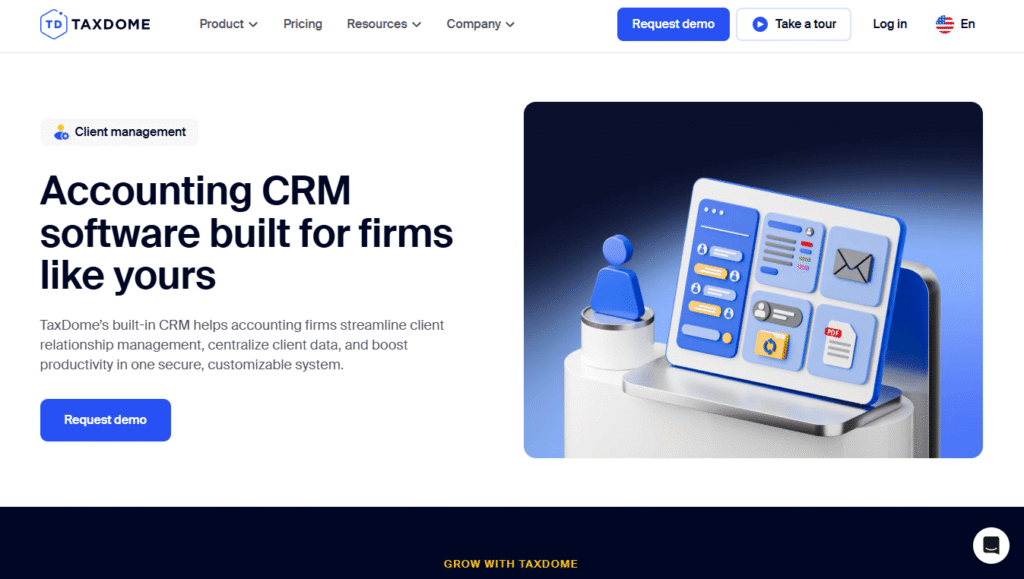
Key Features
- Centralized dashboard with real-time updates
- A secure, custom-branded client portal offering e-signatures, invoicing, and seamless document sharing.
- Bulk email campaigns with reminders
- Digital tax organizers and questionnaires
- Integrations with QuickBooks, Zapier, Calendly, and Outlook
- Unlimited storage, contacts, and e-signatures
Who Uses TaxDome?
TaxDome is trusted by firms of all sizes looking to simplify workflows and consolidate their tech stack. With transparent, all-inclusive pricing, it’s a smart option for practices aiming to grow efficiently.
Pros and Cons
Pros
- Secure client portal and email sync
- Unlimited storage and contacts
- Built for accountants and tax professionals
Cons
- Limited advanced lead generation tools
HubSpot CRM
HubSpot CRM is a simple, user-friendly platform that helps firms track clients and teams through a clean, intuitive dashboard. Its automation and reporting tools make it a popular choice for growing practices.
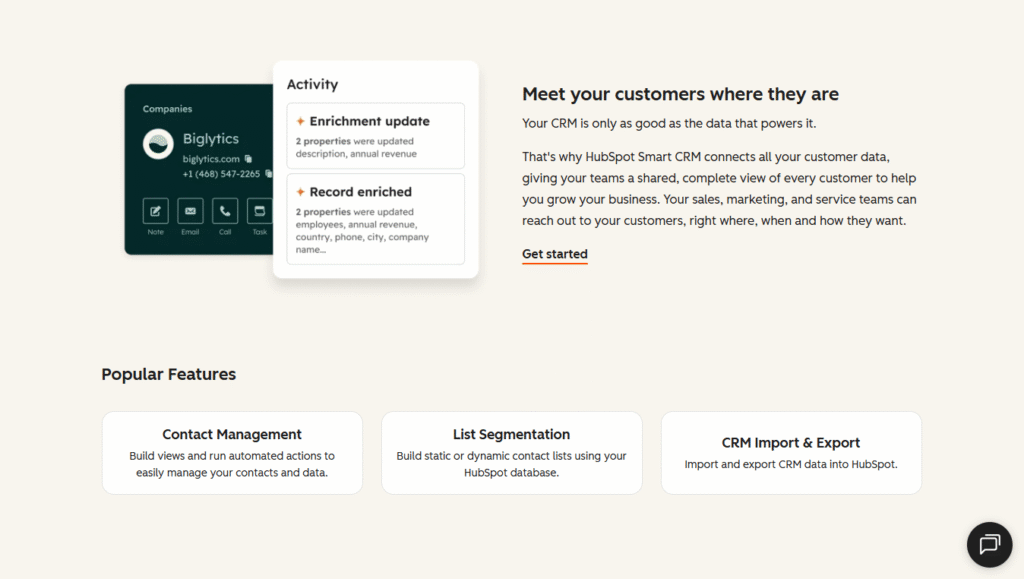
Key Features
- Pipeline management to oversee client journeys
- Task and lead automation to cut admin work
- Performance tracking and reporting
- Easy scheduling for meetings and appointments
- Unlimited users, data, and up to 1M contacts
Who Uses HubSpot CRM?
HubSpot is widely used across industries by firms looking to grow their sales pipeline and client base. For accountants, it’s a smart option if they already use HubSpot’s marketing tools. Small practices benefit from the free version, while larger firms often upgrade for advanced features.
Pros and Cons
Pros
- Free version available
- Strong automation and reporting
- Seamless integration with HubSpot tools
- 1,500+ third-party integrations
Cons
- Paid plans are expensive
- Free version is limited for bigger firms
PipeDrive CRM
PipeDrive CRM is built to optimize the sales process, making it easier for firms to track leads and client interactions. With automation and communication tracking, it helps teams focus on conversion rather than admin work.
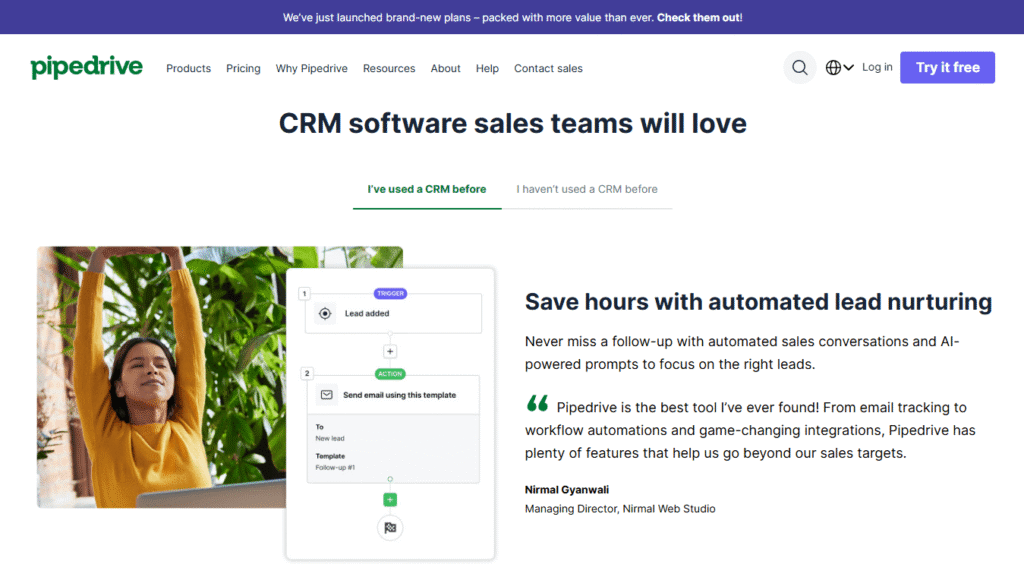
Key Features
- Lead management across every stage of the pipeline
- Automation of repetitive tasks
- Tracking of emails, calls, and messages
- Privacy and security alerts to safeguard client data
Who Uses PipeDrive CRM?
PipeDrive is popular with businesses that prioritize sales growth. While it’s widely used across industries, its strong sales focus makes it better suited to firms looking to boost lead generation rather than day-to-day accounting workflows.
Pros and Cons
Pros
- Flexible pricing tiers
- 24/7 lead generation chatbot
- Sales automation tools
- Drag-and-drop pipelines
Cons
- Sales-focused, less relevant for accounting firms
- Steep learning curve
- Limited customization options
Insightly CRM
Insightly CRM helps businesses manage clients with lead routing, automation, and relationship tracking. It’s intuitive and scalable, making it a good fit for small to mid-sized firms.
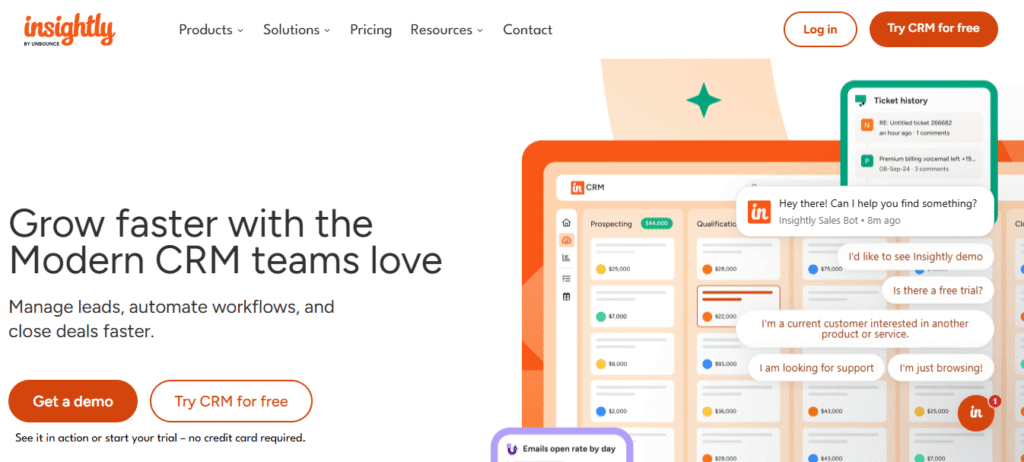
Key Features
- Lead routing with timely follow-ups
- Task automation
- Gmail/Outlook integrations
- Bulk email campaigns with stats
- Contact-to-organization links
- Project milestone tracking
Who Uses It?
Best for small to mid-sized businesses needing growth-friendly CRM. However, it lacks accounting-specific tools.
Pros and Cons
Pros
- 2,000+ integrations
- Real-time insights
- Easy to scale
- User-friendly
Cons
- Limited customization
- No form builder
- Less suited for enterprises
Zoho CRM
Zoho CRM helps businesses streamline sales, marketing, and client management with automation and customization options. It centralizes client data and offers detailed analytics for performance tracking.
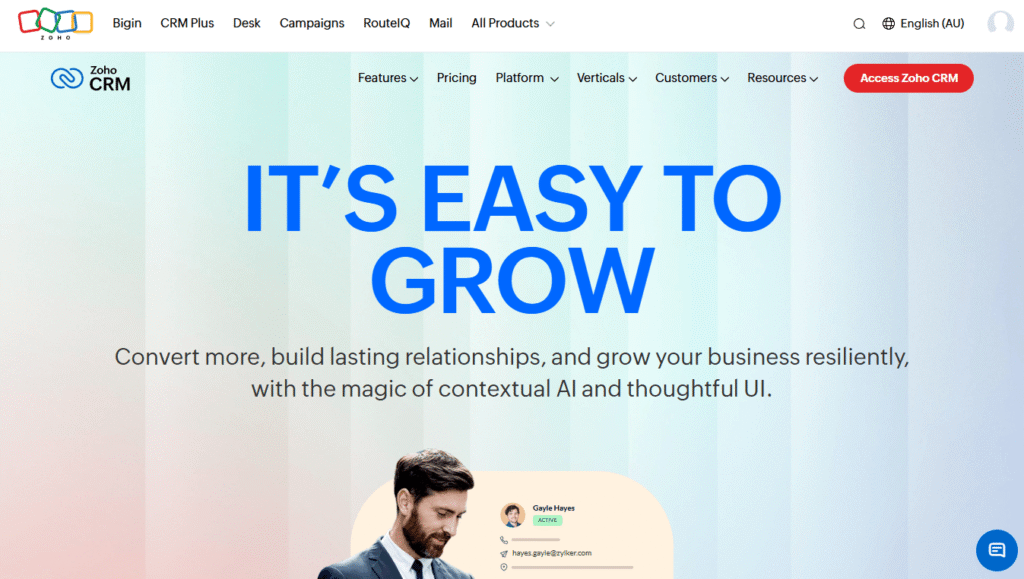
Key Features
- Marketing, sales, and workflow automation
- Lead and deal management
- Centralized contact management
- Customizable workflows
- Performance reporting & analytics
- Email integration across platforms
Who Uses It?
Used by businesses of all sizes. Small teams often opt for the free version, while larger firms using other Zoho tools benefit from its paid plans. Less relevant for accounting firms focused purely on client relationships.
Pros and Cons
Pros
- Free version available
- Integrates seamlessly with Zoho tools
- Strong email automation
Cons
- Steep learning curve
- Complex setup and customization
- Interface not very user-friendly
Nimble CRM
Nimble CRM focuses on relationship management by unifying contacts, tracking interactions, and offering team dashboards with client insights. It also integrates with web, email, and social platforms for easy access.
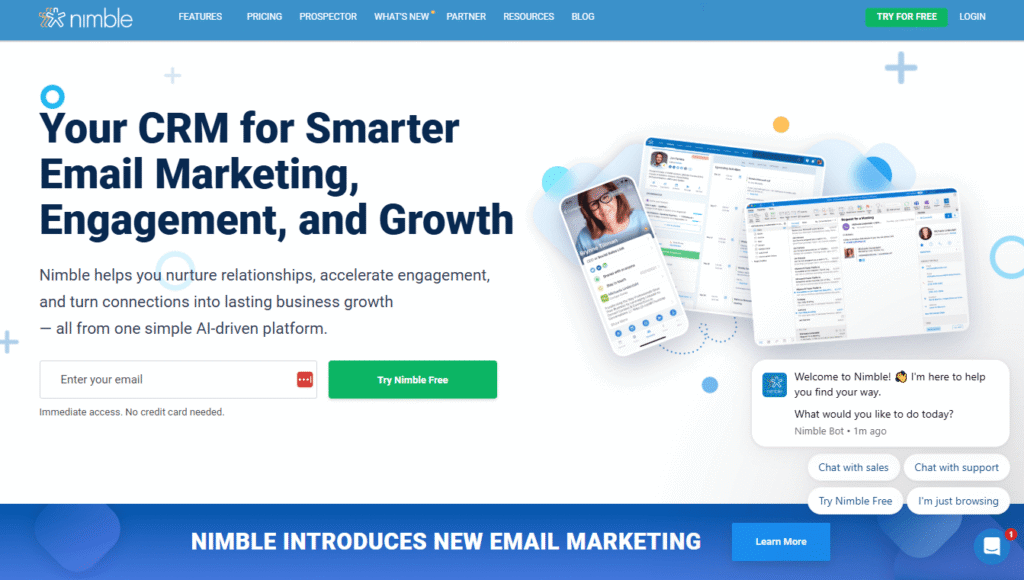
Key Features
- Contact unification from 160+ apps
- Client segmentation by needs and interests
- Team dashboards with task and progress tracking
- Visual sales pipeline
- Analytics for sales and team performance
Who Uses It?
Best suited for solopreneurs and small businesses. While it excels at sales and marketing outreach, it may not fully align with the needs of accounting firms.
Pros and Cons
Pros
- Browser and email extensions for lead capture
- Social profile matching
- Easy setup and use
- Microsoft & Google integrations
Cons
- Only one pricing tier
- No desktop app
Method CRM
Method CRM is built for tax professionals and accounting firms that use QuickBooks, offering client portals, lead management, and customizable workflows.
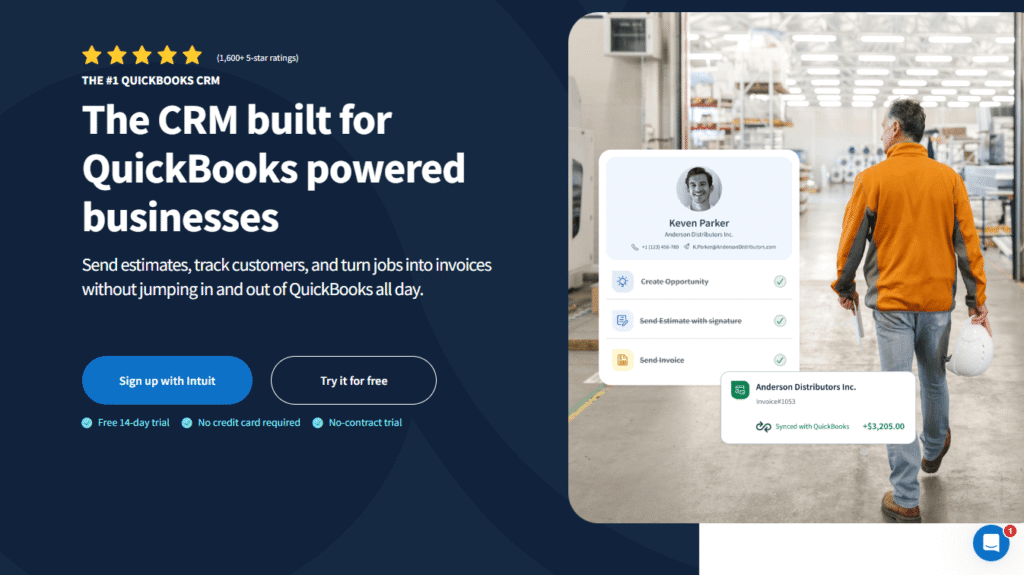
Key Features
- Online client portal with self-serve payments
- Automated lead management synced to QuickBooks
- Centralized client data for targeted campaigns
- Custom fields, tables, and templates
Who Uses It?
Ideal for small and mid-sized accounting firms needing a simple CRM integrated with QuickBooks. However, it lacks full practice management, so additional tools may be required.
Pros and Cons
Pros
- Designed for accountants and tax professionals
- Real-time QuickBooks sync
- Automated workflows
Cons
- Steep learning curve
- Limited integrations beyond QuickBooks & Xero
Freshsales CRM
Freshsales is an AI-powered CRM designed to manage sales pipelines, generate leads, and streamline client tracking with automation and smart insights
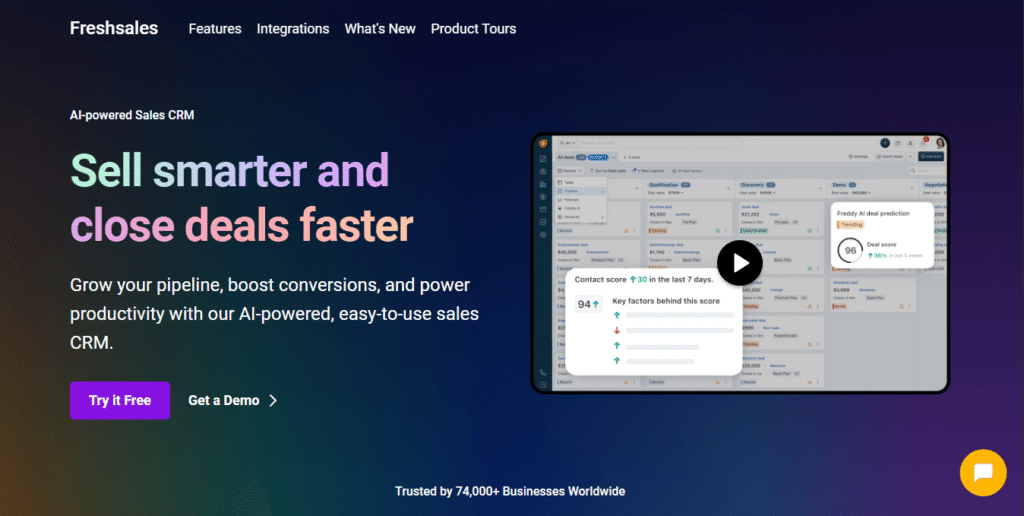
Key Features
- Workflow management with table and Kanban views
- Email, chat, and SMS sync
- Automated workflows and sales sequences
- Integrations with Slack, Xero, Outlook, and more
- AI-driven insights and reporting
- Role-based access for teams
Who Uses It?
Freshsales is primarily adopted by small and mid-sized businesses, with a strong presence among firms in the professional services sector. While it integrates with popular accounting platforms, it lacks accounting-specific tools.
Pros and Cons
Pros
- Free version available
- All-in-one sales platform
- Strong automation tools
- Multi-channel communication support
Cons
- No accounting-focused features
- No 24/7 support
- Can be costly for larger teams
Salesforce CRM
Salesforce is one of the world’s leading CRMs, with its Sales Cloud offering tools to engage leads, manage pipelines, and support clients through AI-driven insights.
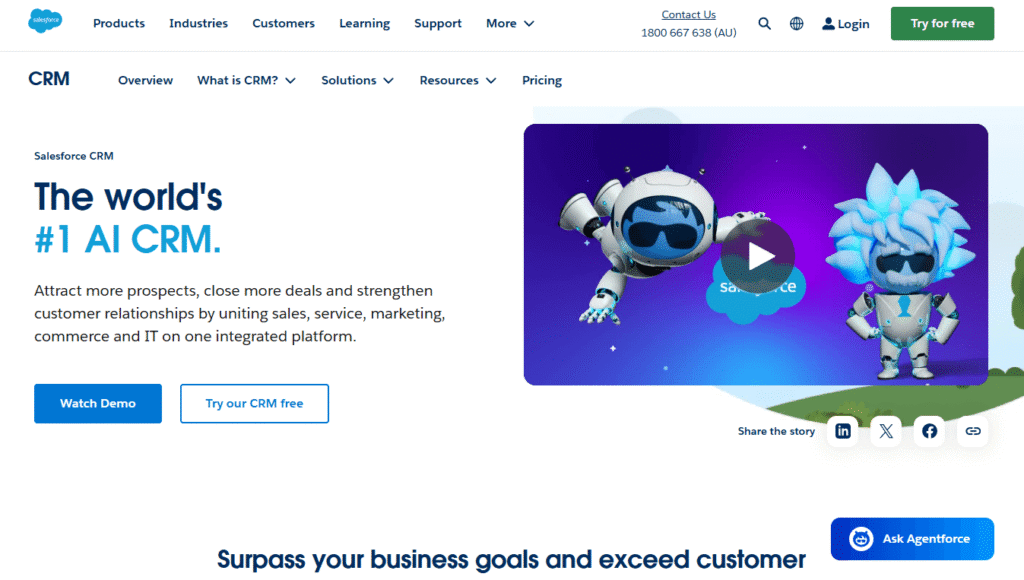
Key Features
- AI-powered sales insights
- Predictive analytics and forecasting
- Automated workflows and processes
- Lead, account, and pipeline management
- Real-time dashboards and reporting
- Quote templates for faster deals
Who Uses It?
Trusted by over 150,000 companies worldwide, including AWS, Spotify, and Walmart, Salesforce is especially popular with large enterprises and sales-driven organizations.
Pros and Cons
Pros
- Powerful AI and predictive analytics
- Robust sales and lead management
- Highly customizable
- Scales for large enterprises
Cons
- Steep learning curve
- Complex pricing
- Expensive for teams
- Too sales-focused for accountants
Accelo CRM
Accelo is a cloud-based platform built for professional service firms. It combines CRM tools with project management, billing, payments, and resource management to streamline client work and boost profitability.
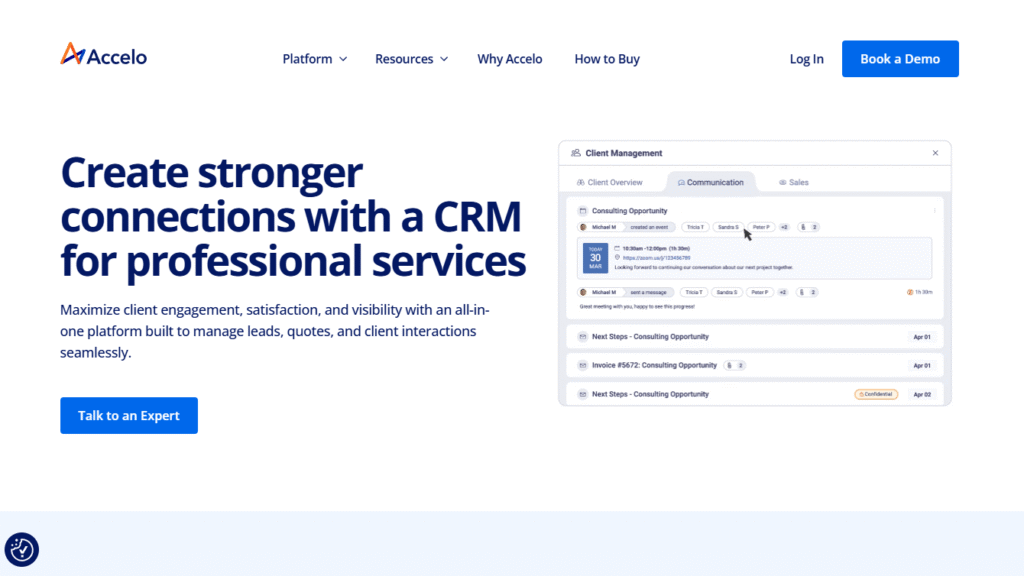
Key Features
- Centralized client database
- Opportunity tracking and forecasting
- Automated client quotes and invoices
- Project and resource management
- Retainer agreements for recurring work
- Client portal for communication and updates
Who Uses It?
Accelo is popular with accounting, consulting, and IT firms that want one system to manage clients, sales, and projects in a single platform.
Pros and Cons
Pros
- Automates workflows and billing
- Strong project management features
- Replaces multiple tools
- Customizable client portal
Cons
- Steep learning curve
- Pricing not transparent
- Not accounting-specific
- Mobile app needs improvement
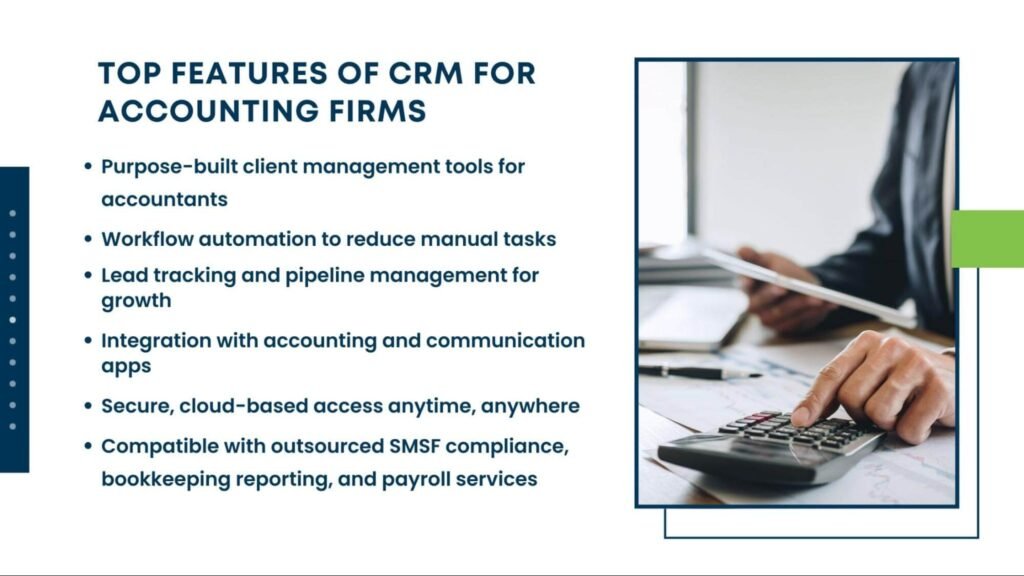
Conclusion
When choosing a CRM for accounting firms, practices should prioritize features that simplify client collaboration, improve workflow efficiency, and integrate seamlessly with accounting tools like QuickBooks or Xero. Many are also leveraging business planning services and compliance outsourcing to strengthen their operations and scale effectively.
The best accounting CRM software in 2025 depends on your firm’s size, goals, and workflows, from niche tools like TaxDome to broad platforms like HubSpot, Zoho, and Salesforce.
By adopting the right CRM system for accountants and combining it with services such as outsourced SMSF compliance, bookkeeping reporting services, or payroll processing outsourcing, firms can streamline operations, improve client relationships, and stay competitive in a rapidly evolving industry. To explore the best fit for your practice, feel free to get in touch with our team for tailored guidance.




